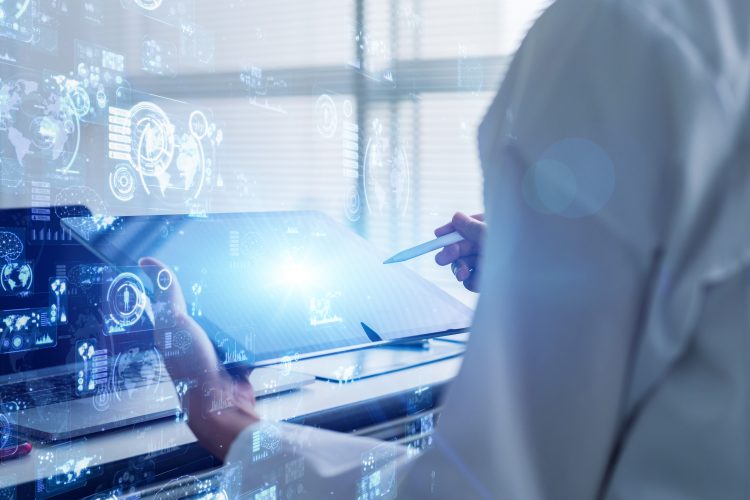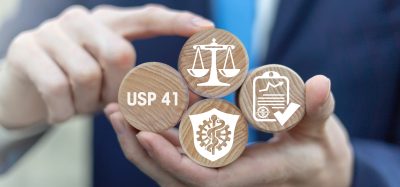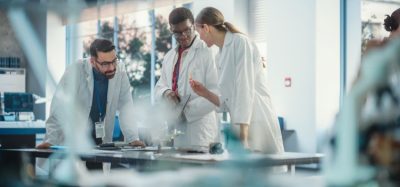The rush to create a vaccine to combat COVID-19 highlights the need to equip researchers with digital solutions
Posted: 11 September 2020 | Phoebe Chubb | No comments yet
In this article Phoebe Chubb outlines some of the digital solutions that are enabling researchers to continue their work remotely or with social distancing measures, including the Electronic Lab Notebook, Internet of Things (IoT) and automation.


Over the past couple of weeks, we have seen an incline of the number of cases of COVID-19 around the world. The pandemic is often described as a ‘war’ against an invisible enemy, an enemy that does not discriminate between wealth, gender, ethnic origin or religious belief. In some way, everyone is affected by it – in months it has drastically altered society as we know it and this impact is likely to continue. Throughout the situation, stories have arisen of incredible bravery, strength and unity, particularly on the part of doctors, nurses and scientists who are collectively attempting to solving this crisis. However, in order for these essential workers to continue, they must be given the tools in order to adapt to the current circumstances. These times have proven particularly difficult for researchers as it is challenging to practise social distancing in a laboratory; nevertheless, digital solutions can alleviate the burden on scientists whilst also maintaining, or potentially increasing, productivity levels and research yield.
Swapping paper for digital
In these unprecedented times, laboratories face tough decisions regarding the continuation of their research. One such decision is to either participate in technological and digital advances or be left behind. Remote work has proven to have its own set of challenges for some laboratories more than others. This is attributed to the fact that many laboratories still use paper as the main method of recording their research. Even without the current pandemic, this method created significant setbacks, as scientists would have to search through a number of paper notebooks in order to find the relevant previous experiments/data needed. Not only is this method impractical, as it requires a scientist to be on-site to access research, but it is also both error-ridden and time-consuming. The electronic laboratory notebook (ELN) eliminates the need for the manual transcription of an experiment, with some offering inventory systems which can be easily integrated with the digital laboratory notes. These features allow scientists to continue research from anywhere with internet connection.


This digitised version of the paper lab notebook facilitates accessibility, team collaboration and data documentation. It is helping scientists globally adapt to the COVID-19 pandemic by allowing researchers to continue working on the online platform. There has recently been a surge in ELN adoption, as the need to continue research has outweighed the argument for keeping things rooted in the past. COVID-19 has changed the entire environment. In order for laboratories to stay productive, some digital elements must be introduced and for many laboratories, the ELN is proving a vital tool for facilitating research. Despite uptake being largely driven by the short term need for a digital solution created by the pandemic, this solution is likely to have a more lasting impact and become a staple feature in most laboratories around the world.
IoT and Automation
In the limelight as the result of COVID-19, laboratory automation and the Internet of Things (IoT) have increased relevance for the potential benefits they offer science. Like the ELN, its introduction into the laboratory is not a new phenomenon; rather, it has just taken considerable time to be adopted, particularly in research laboratories that rely almost entirely on grants to fund their research projects. With a constrained budget, implementation of enabling technologies is understandably delayed due to lack of funds and apprehension to implement entirely new experimental processes. However, in the current climate, there has been an increased emphasis on what digital technologies can do to ensure that scientific work continues and is conducted faster and smarter. With a greater emphasis on scientific research, in the search for a vaccine, there have been talks of increasing funding for R&D. As IoT’s purpose in the laboratory is to minimise the wastage of researcher time and effort by taking over their repetitive tasks. This makes laboratory forms of IoT especially effective in the current climate, as it could enable laboratories to function with half the number of staff, which could make social distancing in the laboratory easier.
Whilst some laboratories look to expensive automation machinery to improve productivity, there are other more financially viable alternatives which are easier to implement into the laboratory. Take the laboratory execution system, for example, an innovative solution which allows experiments and workflows to be digitally supported by device connectivity. It comes in the form of a connector box that offers a Plug’n’Play approach so you can connect to any device and directly receive information and notifications from laboratory devices. This allows a lab technician to be guided through an experiment by automated substeps like calculations, data transfer or remote controlling of devices. With its simpler set-up, this system is a more affordable, quicker way of implementing IoT into the laboratory that can help productivity in light of COVID-19.
Combatting COVID-19


COVID-19 represents the greatest challenge we, as a global community, have had to face since the destruction left after WWII. Studies have shown that we will be feeling the rippling effects of this pandemic for years to come, not only in an economic sense but also in a social sense. It has not only exposed flaws in a number of countries’ healthcare systems but also brought to light changes that need to be made to research and development to improve productivity, efficiency and accuracy to quicken the vaccine response to a virus. Digital solutions offer a wave of benefits which could be put to good use in the current circumstances. ELNs are the most basic tool that can be used in these unprecedented times offering an online platform that facilitates laboratory teams to continue their research remotely. They will still face significant challenges, yet this will be somewhat offset by improved levels of flexibility and accessibility.
It is not just the way that researchers work that poses some barriers to scientific discovery and progression. Every year papers are rejected due to human error, data documentation or the verification process. By implementing digital solutions such as IoT and automation into the laboratory, it transfers manual tasks over to devices that excel in high volume repetitive tasks that need to be conducted in the laboratory on a daily basis. Digital solutions are providing a way for scientists to continue research in light of the pandemic, streamlining processes and ensuring that humanity can address this challenge with full strength.
Conclusions
In this rapidly evolving situation, all laboratories, regardless of whether they are academia or industry, need to adapt to ensure that they remain productive. COVID-19 has exposed to the world the importance of scientific research and this will likely result in greater financial support being made available for laboratories, due to the need to ensure that important research can continue and challenges we currently face can be overcome with science. All around the world, laboratories are in a race against the virus to create a successful vaccine. Never before have the eyes of the world been more fixed on what the realm of science can achieve. Scientific advancement and technological progression have always gone hand in hand and these circumstances are no exception. Going digital in response to this pandemic is the best way to ensure that laboratories can continue to make groundbreaking discoveries.
About the author
Phoebe Chubb is freelance writer who specialises in the implementation of IoT and other enabling technologies into the laboratory environment. She has published a number of articles on high profile sites such as Hackernoon, IoTforall, The Pie Blog and many more. In her articles she addresses the importance of digitalisation in research and development, highlighting the pivotal role it plays in ensuring scientific advancement.
Related topics
Lab Automation, Research & Development (R&D), Technology, Viruses









